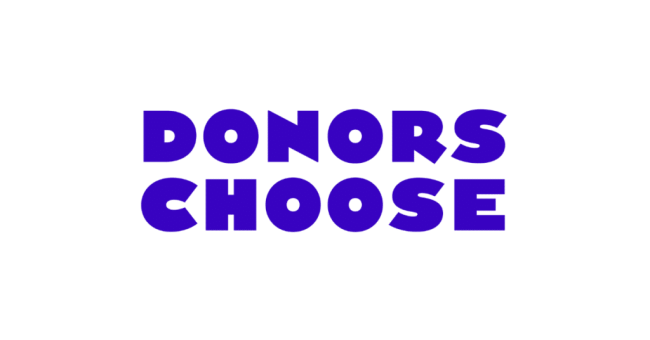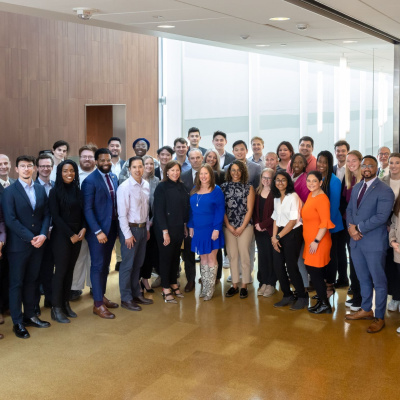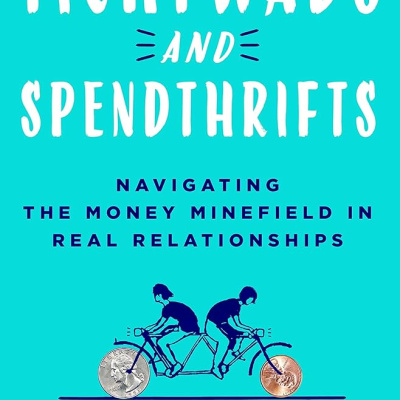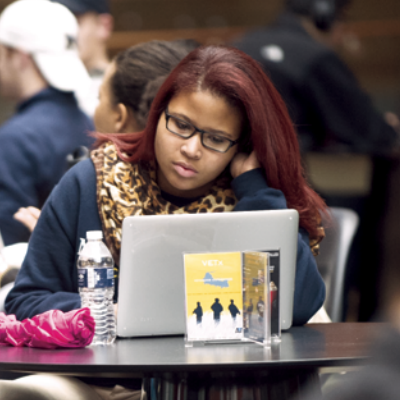Explore the faculty research, thought leadership, and groundbreaking philosophies that established Michigan Ross as one of the world’s top business schools.

Four student-run venture funds are currently operating at Michigan Ross, more than any other business school. Collectively, these funds manage a portfolio worth more than $10 million. These funds help students learn about investing early-stage capital by making real deals with real companies and real money. The concept of student-run venture funds has been adopted by universities around the world.

The Affordable Care Act represented arguably the largest change in federal health policy since the creation of the Medicare and Medicaid programs in the 1960s, expanding coverage to approximately 40 million people who were previously uninsured. In a series of papers published in the Quarterly Journal of Economics, New England Journal of Medicine, AEJ: Applied Economics, Journal of Public Economics, and other outlets, Associate Professor Sarah Miller and her co-author Dr. Lara R. Wherry quantify the impact of this policy on the predominantly low-income population who gained coverage as a result of the reform's resultant changes in Medicaid eligibility. Their work has shown that 1) low-income adults who gained coverage through the ACA Medicaid expansions experienced reduced mortality rates and that the failure of some states to adopt these expansions cost approximately 4,800 deaths per year in those states; 2) low-income adults who gained coverage through these expansions experienced improved access to medical care and improved financial outcomes; 3) the expansion of coverage to these individuals did not crowd out care provided to population who were unaffected, such as those in Medicare. This work has garnered over 1,800 citations and has been discussed in numerous high-profile media outlets and policy documents.

In 2018, Professor Tom Lyon led a team of scholars who published a groundbreaking article about corporate political responsibility titled “CSR Needs CPR” in the California Management Review. The article argued that corporate social responsibility was an insufficient measure of corporate contribution to society and that stakeholders who care about CSR should also pay attention to corporate political responsibility. In 2019, Elizabeth Doty, adjunct faculty at Presidio Graduate School, contacted the Erb Institute at the University of Michigan and suggested turning the article into an industry roundtable dedicated to working with a select group of influential business leaders and their companies to bring to life the core precept of the article – the need to better align companies’ political spending and lobbying with their commitments to values, purpose, sustainability, and stakeholders. Thus, the Erb Corporate Political Responsibility Taskforce was founded in 2020. Lyon and Doty have developed the taskforce into a nationally recognized forum with the goal of making CPR a new norm for business. The taskforce operates under Chatham House Rule and has 20 members from some of the most recognized brands in the United States who share best practices and address CPR challenges. In 2023, the taskforce released the non-partisan Erb Principles for Corporate Political Responsibility, with five major companies as inaugural signatories. Looking ahead, the taskforce will continue building its integrated framework and engage more companies in applying the Erb Principles. Lyon continues his work in this space with his recently published volume Corporate Political Responsibility.

The Dare to Dream grant program is an initiative by the Zell Lurie Institute for Entrepreneurial Studies. It provides funding to U-M students interested in exploring and pursuing entrepreneurial ventures.
The student grant program offers three different tracks targeted toward early-stage students looking to develop a business concept to integrate entrepreneurship into their academic studies, students who have already developed a business concept and are seeking to validate and assess the feasibility of their idea, and students who are ready to launch their ventures.

Since an article she published in the Iowa Law Review in 1995, Professor Dana Muir has worked in the field of fiduciary obligation, particularly as it relates to the investment of the almost $37 trillion in U.S. retirement assets, but also as it relates to a variety of other employee benefit plans. In her 1995 article, Muir explained that the courts' attempts to define fiduciary obligation using concepts from fourteenth-century trust law were misguided. Muir has subsequently addressed fiduciary concepts in the context of investment advice, the extent to which employers serve as fiduciaries of the plans the sponsor, and, most recently, in their application to the consideration of environmental, societal, and governance factors in the investment of retirement fund assets.

In 2008, an article by Michigan Ross Professor Scott Rick changed how academics, practitioners, and the general public thought about consumers’ spending habits. The key insight was that many people who spend very little are frustrated with their behavior. They consistently spend less than they think they should, often with negative consequences for themselves and those around them. Under-spenders (“tightwads”) and over-spenders (“spendthrifts”) are two sides of the same coin: both experience conflict and distress around their spending habits. The scale Rick and colleagues developed to measure these tendencies has become widely used by marketing and psychology researchers. The tightwad-spendthrift construct attracted even more attention when Rick and colleagues demonstrated that tightwads and spendthrifts are more likely to marry one another than they are to marry someone like themselves. This “opposites attract” pattern is initially enjoyable, but eventually, as partners begin to confront a never-ending series of joint spending and saving decisions, tightwad-spendthrift differences harm relationship quality.
This research has attracted broad attention beyond the boundaries of marketing academia. It has been the topic of webinars, podcasts, and other features produced by the National Science Foundation, the American Psychological Association, the National Academy of Sciences, and the World Economic Forum. It has received years of sustained coverage from media outlets such as NPR, the New York Times, and the Wall Street Journal. Financial organizations like the CFP Board, ING, Charles Schwab, and Equifax have informed their clients and customers about the implications of this research. Most notably, in 2024, St. Martin’s Press published a mass-market book about this research, titled Tightwads and Spendthrifts: Navigating the Money Minefield in Real Relationships.

Under the leadership of Marian Krzyzowski, Michigan Ross launched the Domestic Corps in 1992 with financial support from the United States Department of Education Fund for the Improvement of Post-Secondary Education. The Domestic Corps provided leadership development and action-based learning opportunities for Ross students while providing critical business assistance to the non-profit community in the United States. For 15 years, the Domestic Corps placed hundreds of students in more than 100 non-profit organizations nationwide, where they worked on projects in economically distressed and culturally diverse communities. That included Native American communities, inner city community-based organizations, and rural non-profits. The Domestic Corps also partnered with the University of Michigan's Neighborhood AmeriCorps Program to place MBA interns in 20 more than Detroit community-based organizations. The Domestic Corps projects helped raise millions of dollars, won national awards for community and economic development, and transformed numerous organizations while simultaneously providing students with management experience in challenging contexts and instilling a sense of corporate responsibility and social justice.

If people don’t pay much attention to the ads when they watch TV, they can’t possibly think a lot about what the ads are saying. How, then, does advertising have the effects on consumer buying that it does? Showing that emotional responses evoked by the ad play an important role was a major research contribution by Rajeev Batra, Michigan Ross marketing professor. Batra came to U-M in 1989 from Columbia University, where he began this research stream. Over 10 years at MichiganRoss, he grew this research stream to show more clearly how these ad-evoked emotions interacted with the ads’ more rational content, what the different types of ad-evoked emotions were and how they could be measured accurately, and how they shaped consumers’ liking for and perceptions about brands. His co-authored papers on these topics have been cited more than 8,000 times, and he has twice been listed among the most influential scholars in the study of advertising. The methods he developed for measuring the types and effectiveness of emotional ads have also been incorporated into copy-testing systems at multiple ad agencies.

With generous support from the Mitsui Life Insurance Company, Professor E. Han Kim helped to establish the Mitsui Life Financial Research Center in 1990. The center supports research in finance in a myriad of ways and functions as an active community of faculty, students, and visiting research scholars. Since its inception, the center has rapidly expanded its influence and reputation in supporting and disseminating academic research in financial economics. In 1994, a gift from Nippon Telegraph and Telephone allowed the center to offer even greater research support to Michigan Ross faculty. The center holds annual symposiums in Ann Arbor, Michigan, as well as in Tokyo, Japan, and provides research support for faculty and doctoral students through sponsoring weekly Mitsui Finance Seminars, NTT Fellowships, the Mitsui Distinguished Visiting Scholar program, weekly finance reading groups, and data acquisitions.

The Preparation Initiative was created by Professor Emeritus Frank Yates in 2005. Yates was a champion of diversity in higher education and believed all students should have access to Michigan Ross, regardless of their preparation. The Preparation Initiative is a thriving community designed to foster the excellence and success of undergraduate business students from economically distressed backgrounds or from racial or ethnic groups historically underrepresented in business leadership. Since its inception, the Preparation Initiative has supported hundreds of students in their pursuit of a business education and now also offers mentoring opportunities for alums of the program.

In their paper, “Crowdfunding the Front Lines: An Empirical Study of Teacher-Driven School Improvement,” Professors Samantha Keppler, Jun Li, and Andrew Wu conducted the first large-scale empirical test of the frontline improvement theory in K-12 schools. The theory, originating in automotive manufacturing, states that empowering front-line employees to identify organizational and process problems and implement solutions improves organizational performance and customer satisfaction. In this case, the team of Michigan Ross professors was interested in how teacher-identified problems in the classroom and crowd-funded solutions improved learning outcomes for K-12 students.
The team analyzed data on thousands of K-12 teacher projects on the largest teacher crowdfunding site, DonorsChoose. They found that one funded project (about $400 in value), on average, achieves a significant increase in the percentage of students scoring basic and above on all tested subjects in high school, as well as science and language arts in primary and middle schools. This effect translates to two-nine additional students moving up to at least a basic level of proficiency in the correlating subject. The effect of these projects is greatest in low-income schools, where funded projects, on average, move four-10 additional students to at least a basic level of proficiency in tested subjects.
From the textual analyses of the teacher's written statements about the impact of the projects in their schools, Keppler, Li, and Wu additionally learned that student academic performance is significantly better when teachers use crowd-funded money to improve knowledge retention, as a repeated learning tool, and to differentiate or personalize learning.
Due to the demonstrated impact of teacher-driven crowdfunded projects, DonorsChoose has partnered with eight states to spend COVID-19 education relief funding on teacher crowdfunding projects. To date, these partnerships have funded over $100 million of teacher projects from over 100,000 teachers, impacting over 10 million students.

Professor Gautam Kaul and two former PhD students, in their seminal 1994 study titled, "Transactions, Volume, and Volatility" convincingly argued and verified empirically that it is the occurrence of a trade in a certain direction rather than its dollar value (or volume) that has the greatest effect on prices, hence the greatest relevance when assessing the liquidity of the market where that trade took place. A trade sign is determined by the buyer or seller's information, while market conditions determine trade amount and price. This is a simple yet extremely powerful notion that was originally predicated in theory but had no empirical support before their 1994 study. The publication of this study opened the door to the accurate measurement and needed assessment of market liquidity. These days, the approach they recommended is widespread in its use.

In 1999, former Michigan Ross finance faculty member Josh Coval co-authored a paper that is among the top 50 most-cited papers in finance. The paper shows one of the most intriguing patterns in individual behavior. The strong bias in favor of domestic securities is a well-documented characteristic of international investment portfolios, yet this paper shows that the preference for investing close to home also applies to portfolios of domestic stocks. Specifically, U.S. investment managers strongly prefer locally headquartered firms, particularly small, highly leveraged firms that produce nontraded goods. These results suggest that asymmetric information between local and non-local investors may drive the preference for geographically proximate investments, and the relation between investment proximity and firm size and leverage may shed light on several well-documented asset pricing anomalies.

The marketing faculty at the University of Michigan has, over the decades, made several foundational contributions to the area of consumer behavior. Professor Joseph W. Newman, who was a marketing faculty member at the Michigan Business School from 1949-51 and again from 1965-73, helped greatly through his books and research publications to deepen the impact on the marketing discipline of concepts including economics and decision theory, psychology, sociology, and anthropology, especially through the qualitative research techniques of motivational research. Along with his doctoral students, he published highly impactful research on how consumers gather and use pre-purchase information. He also published research on customer satisfaction and dissatisfaction. For these and other contributions, he was named a fellow of the Association of Consumer Research in 1990, its highest honor. In the decades since, the marketing faculty at Michigan Ross has continued to make many more notable contributions to our understanding of consumer behavior.

Following the decision of Dobbs v. Jackson Women's Health Organization by the U.S. Supreme Court, abortion restrictions within the United States have proliferated, and it is reasonable to expect that access to abortion services will be even further reduced in the future. The work of Associate Professor Sarah Miller investigates the impact of abortion denial using new linkages between data from the Turnaway Study and administrative records in credit reports. The Turnaway Study was a path-breaking study from the University of California San Francisco that recruited women seeking abortions, some of whom had pregnancies that just exceeded the gestational age limit of the clinic they attended and were denied abortions, others who fell just below this limit and were able to receive the abortion they sought. Miller and her co-authors found that women denied an abortion and those who received an abortion were on similar trajectories before the denial, but those denied an abortion experienced a large spike in financial problems such as unpaid bills and public records (such as bankruptcies and liens). This spike in financial problems persisted for the full six-year follow-up period that the authors had access to. The results provide evidence counter to the narrative that abortion is exclusively harmful to women who receive one (because of, for example, the regret they may feel after receiving an abortion). Instead, it suggests that giving women control over the timing of their reproduction allows them greater financial stability and self-sufficiency.

In 1998, Professor David Hirshleifer of the Michigan Business School, and two co-authors, published a paper titled "Investor Psychology and Security Market Under- and Overreactions." This paper has been widely recognized as the first explanation of the seemingly contradictory behavior in asset prices (under- and overreactions to different news) based on two well documented behavioral biases. The biases outlined in the paper are overconfidence (regarding the precision of one's private information) and biased self-attribution. The former leads to well documented evidence of long-term overreaction (price reversals), while the latter causes underreaction (momentum) in the medium term. This paper was the first widely recognized paper in finance based on departures from rational behavior and provided a compelling explanation for seemingly anomalous behavior in asset prices.



















